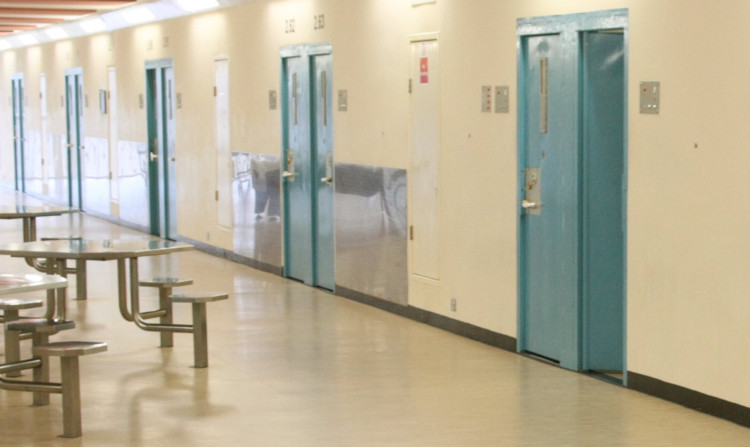Scrapping automatic early release for some offenders will help protect the public, the Justice Secretary has said.
Kenny MacAskill said the freeing of some prisoners before they had served the full sentence handed down by the courts had on occasions caused “considerable upset within communities”.
He spoke out on the issue the day after First Minister Alex Salmond announced the move as he unveiled his government’s legislative programme for the coming year.
Currently long-term prisoners sentenced to four years or more behind bars are automatically released on licence after serving two-thirds of their sentence.
Mr Salmond said that system, introduced by the Conservatives in 1993, did “not command public confidence”.
He told MSPs: “We are now in a position to end automatic early release for sexual offenders getting sentences of four years or more and for serious violent offenders.”
Under the Scottish Government plans, dangerous offenders sentenced to 10 years or more and sexual offenders sentenced to four years or more will no longer receive automatic early release.
Mr MacAskill explained the move followed on from a recommendation by former first minister Henry McLeish, who chaired a commission looking at the purpose and impact of prisons.
“The McLeish Commission said automatic early release should end but it could only end once we had properly sorted out prison numbers,” the Justice Secretary told BBC Radio Scotland’s Good Morning Scotland programme.
While the SNP had pledged to end the system in its 2007 election manifesto, Mr MacAskill said it was only now possible to do so.
He described automatic early release as as “a grievance that people do feel has been left undealt with”.
The limited abolition of this was being targeted at “those who are the most dangerous, those who our analysis shows have been convicted of the most serious crimes and who have the highest propensity for being a danger if returned to our community,” the Justice Secretary said.
“The very nature of receiving a sentence of more than four years for a sexual offence or 10 years for another offence, the harm, the danger, the violence is significant. That is a risk and that is why we are building upon the sage and wise words of the McLeish Commission and we are targeting them. This is about public protection.”
He said that if offenders were deemed by the Parole Board to pose a “significant risk then they are not going to be released until the end of the determinant sentence set by the court”.
When asked if same number of prisoners could be freed by the Parole Board as would have happened under automatic early release, Mr MacAskill insisted: “I don’t think that’s going to happen.
“We’re all aware of some matters that have caused considerable upset within communities where people have be released early. I don’t think that was appropriate and I’m sure that those will be views that will be taken on by the Parole Board, who will look at it from the point of view from public safety.
“We do have to remember if a court gives a determinant sentence, if it provides a set period, that individual has to be released. What we’re seeking to address here is to make sure that that person will not be released until the end of their determinant sentence, provided by the court, if the Parole Board feel they are a danger to our communities.”
He said he was confident the changes the Scottish Government was proposing – which will be brought in by amending the Criminal Justice (Scotland) Bill, complied with the European Convention on Human Rights (ECHR).
Mr MacAskill stated: “We’re satisfied this is ECHR compliant, that it provides the right balance between those who have shown remorse and are being rehabilitated but it provides an opportunity for an independent body, the Parole Board, to decide that if somebody is not showing that change and still poses a danger then they will not be released early.
“That is what our communities want, that is what our communities are entitled to expect from this Government and that is what we are going to deliver.”
Tory leader Ruth Davidson said yesterday that the changes would apply to 2% of offenders given a custodial sentence last year.
“This is a welcome step following years of pressure from the Scottish Conservatives to tackle the scandal of early automatic release, but it does not go nearly far enough and will still result in thousands of criminals being let out of prison automatically before they finish their sentence,” she said.
Labour justice spokesman Graeme Pearson said: “It has taken six years for the SNP to deliver on their promise to end automatic early release.”
